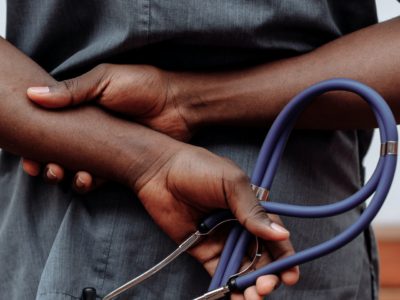A small group of people have been sharing their stories as to what it’s like to get COVID-19 after being fully vaccinated. That’s what happened to Robin Hauser, a pediatrician in Tampa, FL. She came down with the disease seven weeks after receiving both shots of the Pfizer vaccine.
Hauser remembers, “I was shocked. I thought: ‘What the heck? How did that happen?’ I now tell everyone, including my colleagues, not to let their guard down after the vaccine.”
The CDC says that 5,800 people have fallen ill or tested positive for the coronavirus two weeks or more after they completed both doses of either the Pfizer-BioNTech or Moderna vaccine
At least 78 million Americans have already been fully vaccinated against the virus with millions more being added nearly every day. We know that both vaccines are at least 94% effective at preventing illness due to COVID-19 and 100% effective and preventing serious illness. Preliminary data also shows that these vaccines are at least 90% effective at preventing infection 14 days after the second dose.
However, that’s not 100%, so some vaccinated people are still bound to test positive for the virus or develop symptoms. Here’s what we know so far:
Tracking “Breakthrough” Infections
New data from the CDC shows that of the 5,800 people that became infected after getting vaccinated, just over 40% were ages 60 or older, 65% occurred in women, 29% of reported no symptoms, but 7% were hospitalized, and just over 1%, or 74 people, died.
“The CDC is monitoring reported cases for clustering by patient demographics, geographic location, time since vaccination, vaccine type or lot number, and SARS-CoV-2 lineage,” the agency said in a statement. It’s setting up a national database to track these kinds of infections.
Of the people who have died, most were older and/or suffered from multiple chronic conditions such as hypertension, diabetes, and heart disease.
Considering these “breakthrough” infections seem to be few and far between, the CDC made it clear that it’s aware of the situation.
“Vaccine breakthrough infections make up a small percentage of people who are fully vaccinated. CDC recommends that all eligible people get a COVID-19 vaccine as soon as one is available to them. CDC also continues to recommend people who have been fully vaccinated should keep taking precautions in public places, like wearing a mask, staying at least six feet apart from others, avoiding crowds and poorly ventilated spaces, and washing their hands often.”
Still, these post-vaccine infections remain somewhat mysterious.
Dr. Peter Chin-Hong, an infectious disease physician at UC San Francisco, says that it may take more time for some people to develop immunity to the virus.
“There is a spectrum in the way that people develop antibodies. Maybe some parts of the immune system are a little more sluggish in some people. But it eventually kicks in to prevent the virus from becoming more invasive and causing trouble,” he said.
Dr. Kawsar Talaat, an infectious disease physician and assistant professor at Johns Hopkins Bloomberg School of Public Health, adds that increasing the number of vaccinations will ultimately stop people from spreading the virus all together.
“That’s the whole point of getting to herd immunity,” Talaat said. “Because once we get to a point where enough people in the community are vaccinated, then if somebody develops COVID in that community, the people around them are protected and it’s much harder for that person to spread the virus to somebody else, and therefore the transmission stops.”
Dealing with the Shock and Despair
Even if these infections tend to be mild, they still tend to throw fully vaccinated people for a loop, especially if they believe they have full immunity from the virus.
Robin Hauser says she was at home taking care of her two sons after they had caught the virus. She thought she was safe, but she was also taking care of her elderly father at the time, who has cancer.
“It’s a minor miracle that I didn’t infect him before I realized I, too, was sick,” she remembers.
Dr. Kami Kim, director of the infectious disease division at the University of South Florida in Tampa, says these infections can be equally jarring to providers.
“All this, while anticipated, is definitely confusing and frustrating for people, both doctors and patients. We are all learning on the go and making judgments about what’s best for our patients—and ourselves,” Kim said.
Both Moderna and Pfizer have said they aren’t surprised by the results. During its clinical trial, Moderna found that 900 people still got infected after taking the vaccine, which is consistent with the 90% efficacy rate.
The statistics provided by the CDC don’t include vaccinated people who got infected less than two weeks after the second dose or those that got infected after getting their first shot.
It’s also not clear whether variants of the virus are driving these kinds of infections. The country is in the process of ramping up its genome sequencing to track the spread of new variants. For now, the CDC recommends that people who contract the virus after getting their first dose should get their second dose soon after recovery.
If you’re fully vaccinated, don’t forget to stay safe until we get the okay from officials.

















